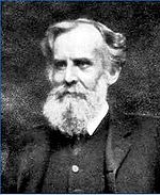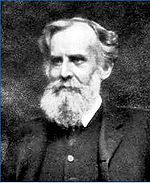
Frequency probability
Encyclopedia

Probability interpretations
The word probability has been used in a variety of ways since it was first coined in relation to games of chance. Does probability measure the real, physical tendency of something to occur, or is it just a measure of how strongly one believes it will occur? In answering such questions, we...
that defines an event's probability
Probability
Probability is ordinarily used to describe an attitude of mind towards some proposition of whose truth we arenot certain. The proposition of interest is usually of the form "Will a specific event occur?" The attitude of mind is of the form "How certain are we that the event will occur?" The...
as the limit
Limit of a sequence
The limit of a sequence is, intuitively, the unique number or point L such that the terms of the sequence become arbitrarily close to L for "large" values of n...
of its relative frequency in a large number of trials. The development of the frequentist account was motivated by the problems and paradoxes of the previously dominant viewpoint, the classical interpretation
Classical definition of probability
The classical definition of probability is identified with the works of Pierre-Simon Laplace. As stated in his Théorie analytique des probabilités,This definition is essentially a consequence of the principle of indifference...
. The shift from the classical view to the frequentist view represents a paradigm shift
Paradigm shift
A Paradigm shift is, according to Thomas Kuhn in his influential book The Structure of Scientific Revolutions , a change in the basic assumptions, or paradigms, within the ruling theory of science...
in the progression of statistical thought. This school is often associated with the names of Jerzy Neyman
Jerzy Neyman
Jerzy Neyman , born Jerzy Spława-Neyman, was a Polish American mathematician and statistician who spent most of his professional career at the University of California, Berkeley.-Life and career:...
and Egon Pearson
Egon Pearson
Egon Sharpe Pearson, CBE FRS was the only son of Karl Pearson, and like his father, a leading British statistician....
who described the logic of statistical hypothesis testing
Statistical hypothesis testing
A statistical hypothesis test is a method of making decisions using data, whether from a controlled experiment or an observational study . In statistics, a result is called statistically significant if it is unlikely to have occurred by chance alone, according to a pre-determined threshold...
. Other influential figures of the frequentist school include John Venn
John Venn
Donald A. Venn FRS , was a British logician and philosopher. He is famous for introducing the Venn diagram, which is used in many fields, including set theory, probability, logic, statistics, and computer science....
, R.A. Fisher, and Richard von Mises.
Definition
Frequentists talk about probabilities only when dealing with well-defined random experimentsExperiment (probability theory)
An experiment is any procedure that can be infinitely repeated and has a well-defined set of outcomes. Examples include tossing a coin or rolling a die.In probability theory, an experiment refers to random experiment. An experiment is said to be random experiment if it has more than one possible...
. The set of all possible outcomes of a random experiment is called the sample space of the experiment. An event
Event (probability theory)
In probability theory, an event is a set of outcomes to which a probability is assigned. Typically, when the sample space is finite, any subset of the sample space is an event...
is defined as a particular subset
Subset
In mathematics, especially in set theory, a set A is a subset of a set B if A is "contained" inside B. A and B may coincide. The relationship of one set being a subset of another is called inclusion or sometimes containment...
of the sample space that you want to consider. For any event only one of two possibilities can happen; it occurs or it does not occur. The relative frequency of occurrence of an event, in a number of repetitions of the experiment, is a measure of the probability of that event.
Thus, if
 is the total number of trials and
is the total number of trials and  is the number of trials where the event
is the number of trials where the event  occurred, the probability
occurred, the probability  of the event occurring will be approximated by the relative frequency as follows:
of the event occurring will be approximated by the relative frequency as follows: .
.A further and more controversial claim is that in the "long run," as the number of trials approaches infinity, the relative frequency will converge exactly to the probability:
 .
.One objection to this is that we can only ever observe a finite sequence, and thus the extrapolation to the infinite involves unwarranted metaphysical assumptions. This conflicts with the standard claim that the frequency interpretation is somehow more "objective" than other theories of probability.
Scope
This is a highly technical and scientific definition and doesn't claim to capture all connotations of the concept 'probable' in colloquial speech of natural languages. Compare how the concept of forceForce (disambiguation)
Force is what causes mass to accelerate or become deformed.Force may also refer to:In science:*Forcing , a proof-technique of set theory*Brute force method, proof by exhaustion in mathematics...
is used by physicists in a precise manner despite the fact that force is also a concept in many natural languages, used in religious texts for example. However, this seldom causes problems or confusion, as the context usually reveals if it's the scientific concept that is intended or not.
As William Feller
William Feller
William Feller born Vilibald Srećko Feller , was a Croatian-American mathematician specializing in probability theory.-Early life and education:...
noted:
- There is no place in our system for speculations concerning the probability that the sun will rise tomorrowSunrise problemThe sunrise problem can be expressed as follows: "What is the probability that the sun will rise tomorrow?"The sunrise problem illustrates the difficulty of using probability theory when evaluating the plausibility of statements or beliefs....
. Before speaking of it we should have to agree on an (idealized) model which would presumably run along the lines "out of infinitely many worlds one is selected at random..." Little imagination is required to construct such a model, but it appears both uninteresting and meaningless.
History
The frequentist view was arguably foreshadowed by AristotleAristotle
Aristotle was a Greek philosopher and polymath, a student of Plato and teacher of Alexander the Great. His writings cover many subjects, including physics, metaphysics, poetry, theater, music, logic, rhetoric, linguistics, politics, government, ethics, biology, and zoology...
, in Rhetoric
Rhetoric (Aristotle)
Aristotle's Rhetoric is an ancient Greek treatise on the art of persuasion, dating from the 4th century BC. In Greek, it is titled ΤΕΧΝΗ ΡΗΤΟΡΙΚΗ, in Latin Ars Rhetorica. In English, its title varies: typically it is titled Rhetoric, the Art of Rhetoric, or a Treatise on...
, when he wrote:
It was given explicit statement by Robert Leslie Ellis
Robert Leslie Ellis
Robert Leslie Ellis was an English polymath, remembered principally as a mathematician and editor of the works of Francis Bacon....
in "On the Foundations of the Theory of Probabilities" read on 14 February 1842, (and much later again in "Remarks on the Fundamental Principles of the Theory of Probabilities"). Antoine Augustin Cournot
Antoine Augustin Cournot
Antoine Augustin Cournot was a French philosopher and mathematician.Antoine Augustin Cournot was born at Gray, Haute-Saone. In 1821 he entered one of the most prestigious Grande École, the École Normale Supérieure, and in 1829 he had earned a doctoral degree in mathematics, with mechanics as his...
presented the same conception in 1843, in Exposition de la théorie des chances et des probabilités.
Perhaps the first elaborate and systematic exposition was by John Venn, in The Logic of Chance: An Essay on the Foundations and Province of the Theory of Probability (1866, 1876, 1888).
Etymology
According to the Oxford English DictionaryOxford English Dictionary
The Oxford English Dictionary , published by the Oxford University Press, is the self-styled premier dictionary of the English language. Two fully bound print editions of the OED have been published under its current name, in 1928 and 1989. The first edition was published in twelve volumes , and...
, the term 'frequentist' was first used by M. G. Kendall
Maurice Kendall
Sir Maurice George Kendall, FBA was a British statistician, widely known for his contribution to statistics. The Kendall tau rank correlation is named after him.-Education and early life:...
http://biomet.oxfordjournals.org/cgi/reprint/36/1-2/101 in 1949, to contrast with Bayesians
Bayesian probability
Bayesian probability is one of the different interpretations of the concept of probability and belongs to the category of evidential probabilities. The Bayesian interpretation of probability can be seen as an extension of logic that enables reasoning with propositions, whose truth or falsity is...
, whom he called "non-frequentists" (he cites Harold Jeffreys
Harold Jeffreys
Sir Harold Jeffreys, FRS was a mathematician, statistician, geophysicist, and astronomer. His seminal book Theory of Probability, which first appeared in 1939, played an important role in the revival of the Bayesian view of probability.-Biography:Jeffreys was born in Fatfield, Washington, County...
). He observed
- 3....we may broadly distinguish two main attitudes. One takes probability as 'a degree of rational belief', or some similar idea...the second defines probability in terms of frequencies of occurrence of events, or by relative proportions in 'populations' or 'collectives'; (p. 101)
- ...
- 12. It might be thought that the differences between the frequentists and the non-frequentists (if I may call them such) are largely due to the differences of the domains which they purport to cover. (p. 104)
- ...
- I assert that this is not so ... The essential distinction between the frequentists and the non-frequentists is, I think, that the former, in an effort to avoid anything savouring of matters of opinion, seek to define probability in terms of the objective properties of a population, real or hypothetical, whereas the latter do not. [emphasis in original]
External links
- Charles Friedman, The Frequency Interpretation in Probability PS
- John Venn, The Logic of Chance

